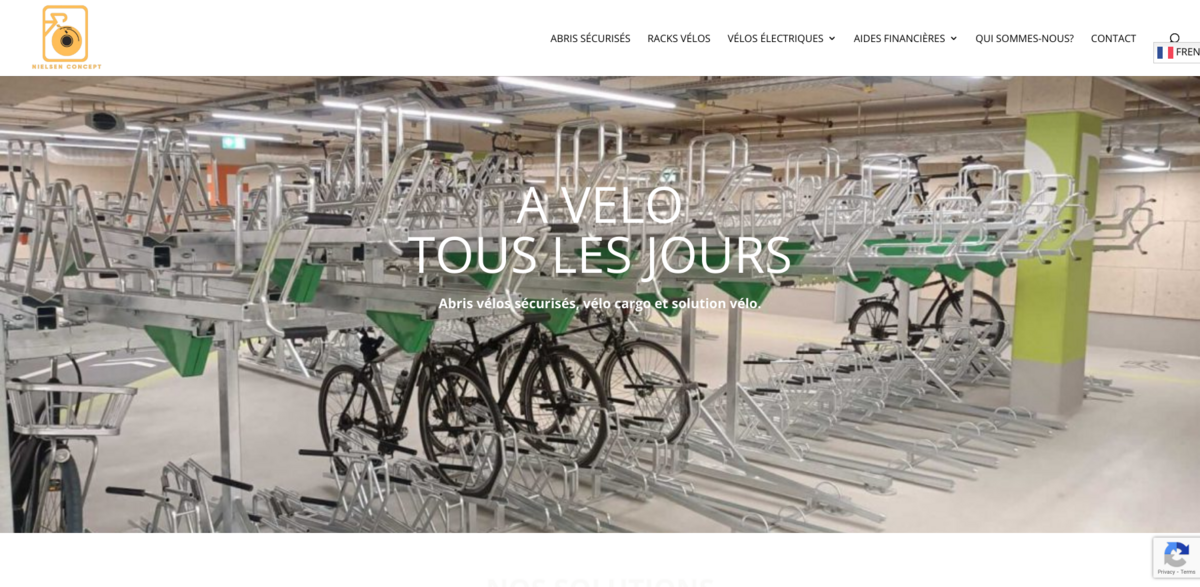Overview of the Innovative Mobility Project
The Nielsen Mobility project is a tech4good initiative delivering inclusive and secured electric individual mobilities with shelter. All products are eligible for financing aids, and this comprehensive scheme covers secure shelters, bike racks, electric bikes, collective bikes including senior bikes and school bus bikes. The project offers an all-in-one solution that combines practical mobility devices with the necessary infrastructure for safe bike parking and storage. It blends innovation with public service, allowing companies, communities, transport operators, and social landlords to benefit from cutting-edge mobility solutions while enjoying financial supports.
Main Benefits and Key Figures
This project stands out for its attractive benefits and clear financial advantages. The innovative financing options and aids allow various beneficiaries to access modern mobility solutions almost effortlessly. Some key facts and figures include:
- Financing aids for every product, from secure shelters to electric bikes.
- The Alvéole Plus program can finance up to 40% of the net project cost, applicable across multiple sectors.
- Eligible for public spaces, schools, educational institutions, train stations, intermodal hubs, private condominiums, and social housing.
- A compelling offer for companies: a 25% reduction in corporate tax through expenses made for bike fleet purchases, rentals, or maintenance.
- The Sustainable Mobility Package supports up to 400€ per year per employee for transport costs using soft mobility.
- Regional aids, such as the 50% support for secure bike shelters in Île-de-France, demonstrate the wide-ranging commitment to sustainable mobility.
Financing Aids and Purchase Flexibility
Whether it is through the Alvéole Plus program or the various regional and corporate aids, the project makes it very appealing by offering a range of financing options. Interested parties can refer to the detailed guide on financial aids for bike purchase available online. The flexibility of financing encourages public authorities and private players alike to adopt secured mobility solutions quickly and without lengthy tender processes. It is a setup designed to overcome obstacles and accelerate innovative public purchases by small and medium enterprises, often without prior competition, and under experimental conditions for limited periods. This streamlined process… it simply makes financial sense.
Aids for Companies and Social Impact
The project also targets companies keen on investing in sustainable mobility. Since January 1, 2019, businesses that provide their employees with bikes for their home-to-work travels can enjoy a reduction in corporate tax, limited to 25% of the corresponding expenses. The secure bike shelters and diverse bike fleets are all part of an integrated offer. Additionally, the employer-sponsored Sustainable Mobility Package, which can cover up to 400€ per employee per year, promotes a more efficient, environmentally conscious, and healthier commuting solution. This combination of economic incentive and enhanced social impact creates a win-win situation for businesses looking to foster a sustainable and active workforce.
Regional Supports and Community Engagement
Regional aids add another layer of attractiveness to the project. Some regions, such as Île-de-France, offer up to 50% aid for secure bike shelters, along with support for providing bike fleets. This regional backing not only boosts local adoption but also enables communities to integrate innovative mobility solutions into their everyday operations. From schools and social housing to public spaces and transport hubs, the program is tailored to fit a wide variety of needs. The approach is dynamic and engaging; it allows local entities to explore creative ways to finance and deploy modern mobility infrastructures, ensuring that even smaller communities have the tools necessary to embrace a greener future.
Exploring Innovative Public Purchases
The project also paves the way for innovative public purchases. Since December 24, 2018, within an experimental framework for three years, the public contract process has been simplified. Buyers subject to the ordinance of July 23, 2015, may directly conclude contracts with small and medium enterprises. This offers a fast and frictionless method to access innovative works, supplies, or services required for safe and secure mobility initiatives. The simplified process is designed to meet needs with costs less than 100,000 euros (excluding tax) and does away with the cumbersome call-for-tenders often associated with public procurement. As a result, it brings public authorities closer to the latest innovations in mobility infrastructure.
Project Impact and Sustainable Development Goals
- SDG 3: Good Health and Wellbeing – Promoting physical activity through cycling and enhancing community health.
- SDG 9: Industry, Innovation, and Infrastructure – Driving innovation in mobility and urban infrastructure.
- SDG 11: Sustainable Cities and Communities – Contributing to safer and more inclusive urban environments.
- SDG 13: Climate Action – Reducing carbon footprints by encouraging the use of sustainable transportation alternatives.
Embracing Secure and Inclusive Mobility
In a rapidly evolving world where urban mobility is a cornerstone of modern life, the Nielsen Mobility project provides an essential service that intertwines innovation, fiscal opportunities, and real-world applications. Casual exchanges among community leaders and policy makers often mention how transformative such projects can be… not only in improving urban accessibility but also by actively supporting a healthy and sustainable lifestyle. The project’s broad scope—spanning secure bike shelters, diverse bike fleets, and comprehensive financial aids—ensures that every stakeholder, from local communities to corporate entities, is empowered to make choices that are both economically viable and environmentally friendly. This holistic approach exemplifies how strategic infrastructure investments can align with public policy and corporate strategies, ultimately leading to smarter, more resilient urban landscapes.


















